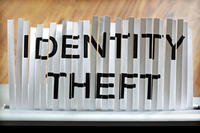Have you ever needed an advance on your paycheck? A small amount to cover that unexpected expense or a big bill payment? You may have been tempted to visit a local "payday loan" outlet. These companies will eagerly offer to provide you with a sum of money equal to your next pay deposit or check - and in some areas, they're known to target military personnel specifically (after all, they know where your next check is coming from).
In case you're tempted, consider this: Payday loans (also known as deferred presentment) are nothing more than legal loan-sharking. It's borrower beware here, because these loans come with a significant price tag attached.
Because payday loan companies charge a "fee" instead of interest, they escape the usury laws that cap interest rates and prevent you from having to pay unreasonable amounts of interest. But if you stop to figure out how much the payday loan "fees" would be as an annual percentage rate (the interest rate that credit card companies charge you, for example), you'll often find that they're higher than usury laws would allow interest to be - and MUCH more costly than even a credit card cash advance would be.
The payday loan companies may also require your personal banking information, and security for the loan that they've given you - which can leave you in a vulnerable financial position.
How payday loans really work
You write a personal check for the amount that you need - say $400 - plus the payday loan company's fee (in this case, say it's 15 percent: that's $60, for a total check amount of $460). The payday loan company gives you $400, and holds your $460 check until your next payday, at which time you return with cash in exchange for your check (or you allow them to automatically debit your bank account).
That's the easy part.
What's the hard part? The fact that the $60 fee just cost you an equivalent annual percentage rate of 459 percent.
Still tempted?
Alternatives to payday loans
If you're looking at payday loans as a potential solution for your financial squeeze, it's an indication that you could be in debt way over your head. You need to look at what's coming in (your pay) every month, and what's going out (your bills). If you're having trouble paying your bills - especially if you're finding it difficult to meet loan payments or the minimum monthly payments on your credit cards - consider other options.
First, immediately stop using your credit cards. Then figure out your repayment priorities. Always put the maximum possible payment toward the loan or credit card that's charging you the highest interest rate. Consider consolidating your debts, by asking your local financial institution to roll all of your debts into one loan. This gives you a single monthly payment, often at a lower interest rate than the individual debts would be charging you. The key to making this work, though, is not running up those individual debts (such as credit cards) again.
At this point, also consider financial counseling - it's often free at military posts and community centers, and can really help you get back on track. Whatever you do, avoid those costly payday loans.
Stanley J. Kershman is The Debt Doctor. A leading authority on solving financial disasters, he has been helping people get out of debt for more than 25 years. He's also the author of Put Your Debt on a Diet: A Step-by-Step Guide to Financial Fitness (Pepper Pike Press), a practical handbook that walks you through the process of improving your money management skills. For free copies of Stanley's handy budgeting worksheets, visit www.debtonadiet.com.










